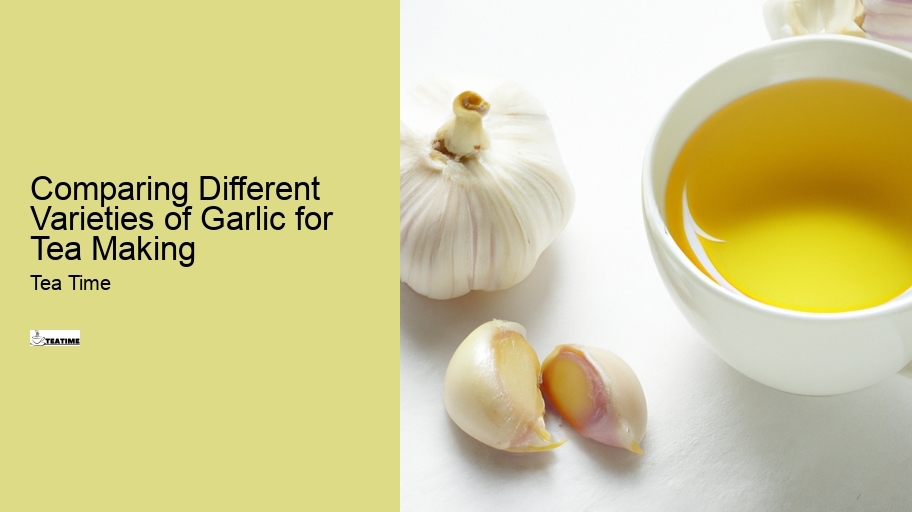

Garlic tea is esteemed as a natural remedy with a wide range of health benefits. Its use in traditional medicine spans centuries and cultures, mainly due to its potent antibacterial, antiviral, and anti-inflammatory properties.
The key to its effectiveness lies in the compounds released when garlic is crushed or chopped. These compounds, particularly allicin, have shown promise in research for their health-promoting properties. Garlic tea serves as an easy and natural way to harness these benefits.
Incorporating garlic tea into a daily health regimen can be a proactive step towards natural wellness. It's a simple, home-made remedy that can be easily integrated into any lifestyle, offering a holistic approach to health maintenance.
Garlic tea's anti-inflammatory properties make it a beneficial drink for those dealing with inflammation-related conditions. Chronic inflammation is a root cause of many health issues, and the natural compounds in garlic, especially allicin, have been shown to help reduce inflammation in the body.
Regular consumption of garlic tea can aid in the management of inflammatory conditions like arthritis, heart disease, and certain types of headaches.
While garlic tea can be a supportive element in an anti-inflammatory diet, it should be consumed as part of a balanced and varied diet. Consultation with a healthcare professional is recommended, especially if you have existing health conditions or are taking medication.
The right brewing equipment can enhance the experience of making and enjoying garlic tea. A good-quality teapot or a saucepan made of non-reactive materials like glass or stainless steel is essential. These materials ensure that the flavor of the tea remains unaltered and free from metallic tastes.
For infusing garlic in water, a fine-mesh strainer or a tea infuser can be very useful. These tools allow the garlic to steep effectively while making it easy to remove the pieces after brewing, ensuring a smooth tea. For those who prefer a stronger flavor, crushing the garlic directly into the water can release more of its beneficial compounds.
When serving garlic tea, a heat-resistant glass or ceramic cup can enhance the experience. Medicinal Properties These materials retain heat well, keeping the tea warm for a longer time. Having the right equipment not only makes the brewing process easier but also adds a touch of elegance to the ritual of tea drinking.
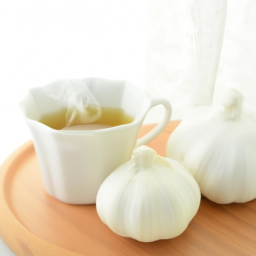
The quality of garlic used in making tea significantly impacts both its flavor and health benefits. Fresh, organic garlic is ideal, as it's free from pesticides and contains higher levels of beneficial compounds. Look for garlic that is firm, with intact skin and no signs of sprouting or moisture, as these are indicators of freshness.
Locally sourced garlic can be a great option, as it's likely to be fresher than garlic that has been transported over long distances. Visiting local farmers' markets or health food stores can provide access to high-quality, locally-grown garlic. This also supports local agriculture and reduces the environmental impact associated with transportation.
If fresh garlic is not available, high-quality dried garlic can be a suitable alternative. Though it may have a milder flavor and slightly different health properties, it still offers many of the benefits of fresh garlic. When selecting dried garlic, look for products with no added preservatives or artificial flavors.
Garlic tea may have a role in supporting hormonal balance, an important aspect of overall health. The natural compounds in garlic, particularly sulfur-containing compounds, are thought to influence hormonal activity in the body. This can be beneficial in regulating hormones related to stress, metabolism, and reproductive health.
For women, especially, garlic tea can be supportive during different phases of the menstrual cycle, potentially easing symptoms like bloating and mood swings. Metabolism Boost Its anti-inflammatory properties can also offer relief from menstrual cramps.
While garlic tea can be a natural aid in maintaining hormonal balance, it's important to consume it as part of a balanced diet. Consulting with a healthcare provider is recommended, particularly for those with hormonal disorders or those on hormonal medications.
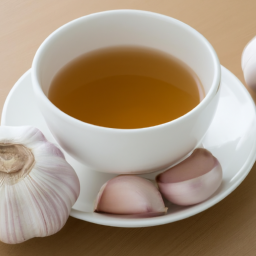
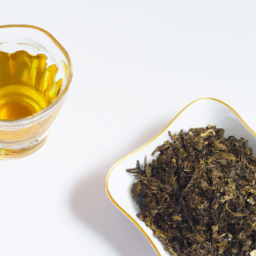
Garlic tea offers a unique and robust flavor profile, which can be an acquired taste for some. Bone Health The primary flavor is, unsurprisingly, garlic – pungent, earthy, and slightly spicy. This strong base is often softened or complemented with additional ingredients like honey, lemon, or herbs.
The flavor can vary depending on the type of garlic used and the brewing method. Fresh garlic results in a more intense flavor, while dried garlic tends to be milder. The steeping time also plays a crucial role – a longer steep yields a stronger brew.
Garlic tea enthusiasts appreciate it for its depth and complexity of flavor, as well as for its health benefits. Exploring different brewing methods and additions can help find the right balance that suits your palate.
Garlic tea is sometimes used as a natural remedy for allergy relief. Its anti-inflammatory properties can help reduce the symptoms of allergic reactions, such as sneezing, congestion, and itchy eyes. Garlic’s natural antihistamine effects can also be beneficial in managing allergies.
The key compound in garlic, allicin, is thought to contribute to its allergy-relieving properties. Drinking garlic tea during allergy season can help in boosting the immune system, making the body less reactive to allergens.
As with any natural remedy, it’s important to use garlic tea as part of a comprehensive approach to managing allergies. It should not replace prescribed allergy medications but can be used alongside them to provide additional relief.
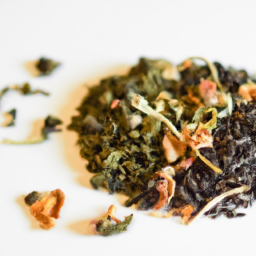
Garlic tea might aid in weight loss as part of a balanced diet and healthy lifestyle. Garlic can boost metabolism and help in regulating appetite, but it should not be relied on as a sole method for weight loss.
It's generally recommended to drink garlic tea earlier in the day. For some, garlic tea can be stimulating and might interfere with sleep if consumed right before bed. However, individual reactions can vary, so you may need to experiment to see how it affects your sleep.
To make garlic tea, start by peeling and lightly crushing 2-3 cloves of fresh garlic to release their oils. Steep the crushed cloves in a cup of hot water for about 5-10 minutes. Strain the garlic and add lemon or honey to taste, if desired. Adjust the amount of garlic and steeping time according to your taste preference.